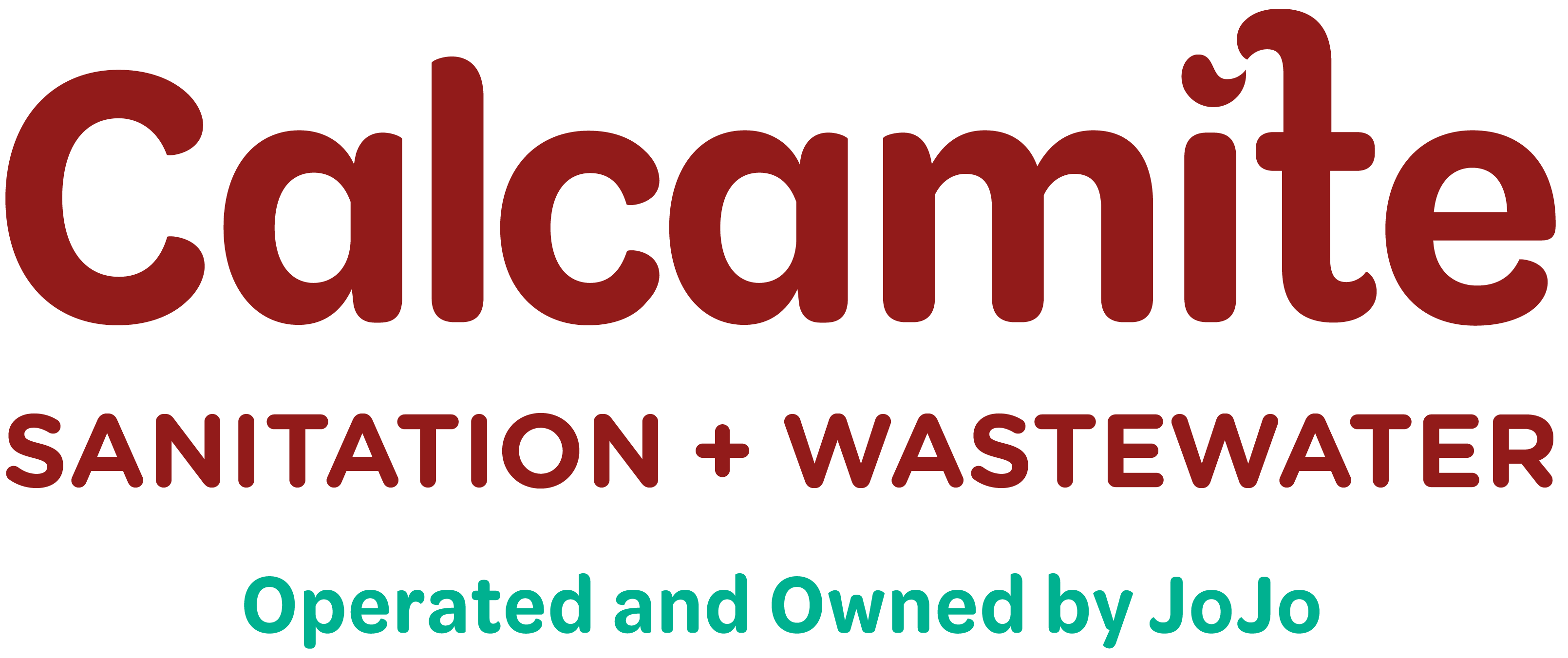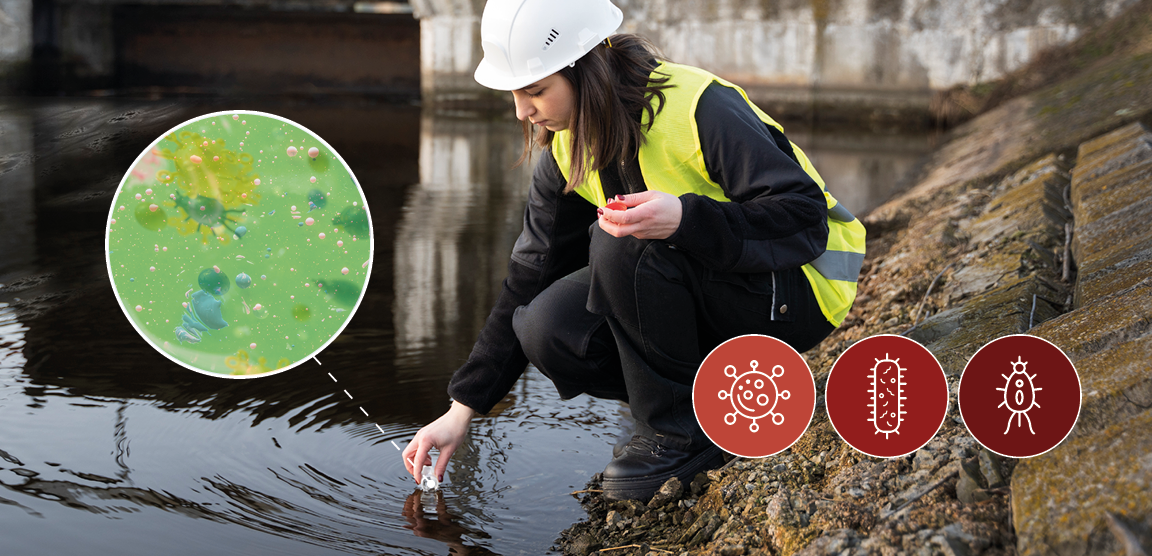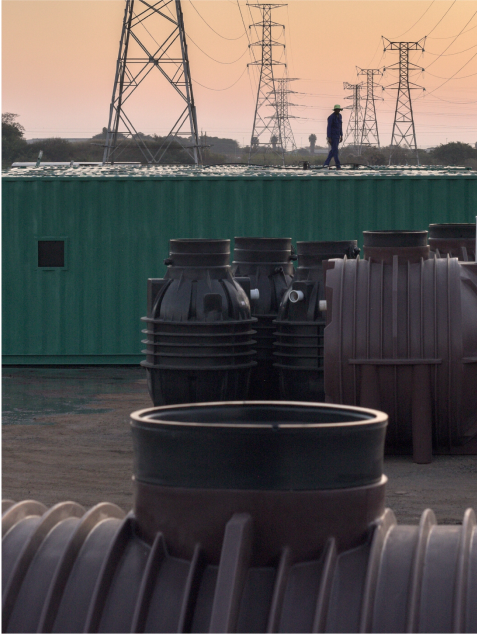Our planet faces many environmental challenges, and water pollution from sewage is one of the most serious. Water pollution not only devastates ecosystems and wildlife, but also poses severe health risks to everybody. Sewage and water pollution have a direct link to life-threatening diseases such as cholera, typhoid, dysentery and hepatitis A. With proper sanitation and wastewater control, all of these are preventable.
At Calcamite, South African sanitation and wastewater specialists since 1967, we’re acutely aware of the potentially deadly consequences of contaminated water sources. Our mission is to address sewage pollution in South Africa with our innovative turnkey solutions. These include the design, manufacture, installation, and maintenance of sanitation and wastewater systems.
In this post, we’ll look closer into the types and causes of sewage pollution, and how to prevent sewage pollution from happening in the first place.
Effects of Sewage Pollution on The Environment
Sewage pollution refers to the discharge of human waste materials into water bodies like rivers, dams, and the ocean. As you’d expect, this pollution has several harmful impacts on the environment:
- Water Quality Degradation
Sewage discharge leads to a significant decline in water quality. Pathogens in the waste not only harm aquatic ecosystems, but also make the water unsafe for human and animal use.
- Eutrophication
Nutrient-rich sewage can lead to eutrophication. This process results in excessive growth of algae, which depletes oxygen in water bodies, causing a decline in aquatic life and often fish die-offs.
- Harm to Aquatic Life and Coral Reefs
Sewage pollutants pose a severe threat to marine life, as they disrupt the delicate balance of marine ecosystems. They are particularly damaging to coral reefs, which are vital for maintaining marine biodiversity and spawning.
- Contamination of Drinking Water Sources
The infiltration of sewage into groundwater and other water sources leads to contamination. This not only endangers human and animal health, but also necessitates expensive water treatment processes.
- Public Health Risks
Sewage pollution is a vector for disease and exposes human populations and wildlife to health risks. These include gastrointestinal illnesses, skin infections, and a wide range of potentially life-threatening conditions like hepatitis A and E, salmonella, E. coli, dysentery, typhoid, and cholera.
- Negative Impact on Tourism and Employment
Sewage pollution in South Africa, particularly sewage polluted beaches, also have a major impact on tourism. This in turn makes it harder for local industries which rely on the funds brought in by visitors, impacting job security.
The Different Kinds of Sewage and Water Pollution
Types of sewage pollution include:
- Domestic Sewage / Sanitary Sewage
This type of sewage originates from households. It typically contains human waste (blackwater) and wastewater from activities like bathing, washing, and dishwashing (greywater). Domestic sewage is a major source of organic pollutants and pathogens.
- Industrial Sewage
Industrial processes generate wastewater with contaminants like chemicals, heavy metals, and organic compounds. Industrial effluents pose a significant threat to the environment.
- Agricultural Runoff
The agricultural sector contributes to sewage pollution, through the industry’s use of fertilisers and pesticides, leading to nutrient pollution and eutrophication.
- Leakage
Poorly maintained sewage systems often lead to leakages, allowing untreated sewage to seep directly into the environment.
How to Prevent Sewage Pollution
Here are some of the most effective sewage pollution prevention methods:
- Maintaining Septic Systems
Regular maintenance of septic systems is vital to prevent leaks and spills that can contaminate water sources. Any cracked or broken pipes must be replaced promptly to prevent sewage seepage.
- Proper Disposal of Waste
Ensuring that waste, especially hazardous materials and non-biodegradable items like plastics and sanitary products, are disposed of correctly can significantly reduce sewage pollution.
- Water Conservation
Reducing water usage lessens the load on sewage treatment facilities. It also lessens the chance of overflows.
- Proper Wastewater Treatment
This plays a crucial role in removing pollutants from sewage before it reaches the environment. Understanding and following the various stages of wastewater treatment is particularly important in the effective treatment of wastewater.
- Proper Management of Fats, Oils, and Grease
Particularly in commercial settings, where large volumes of these substances occur, the proper disposal of fats, oils, and grease is vital. Blockages and overflows in sewage systems can easily happen if this is not done. Our sand, oil and grease traps catch grease, oil, and other solids before they get into the drainage system.
- Reducing Agricultural Runoff
Promoting and implementing better agricultural practices, such as a more controlled use of fertilisers and pesticides, can significantly reduce nutrient pollution.
- Raising Community Awareness
Promoting awareness in your neighbourhood about the importance of preventing sewage pollution is an important factor as well.
How Calcamite Can Help
Calcamite is at the forefront of addressing sewage pollution with our tailored, effective solutions. These help limit water pollution by preventing pollutants from contaminating the environment. Our wastewater management solutions include:
Our advanced on-site sewage processing and wastewater treatment plants efficiently remove pollutants. Our systems treat all domestic waste, including greywater and blackwater. Our systems are easily and quickly installed and are straightforward to operate.
We provide SABS-certified two-chambered high-quality septic tanks and conservancy tanks for effective domestic waste management. Both come in easy-to-install modular units.
Our effluent disposal systems ensure that waste is treated and disposed of in an environmentally friendly manner. Our compact infiltration chambers and aeration tiles are less invasive than traditional systems.
Our greywater systems allow for the recycling of wastewater, reducing the burden on sewage systems and promoting water conservation.
In Closing
The threat of sewage pollution is a very real and urgent issue that cannot be ignored. In today’s South Africa, it is crucial that individuals, communities, and industries alike start taking proactive sewage pollution prevention measures, and we are here to help!
Calcamite offers a range of quality products designed to deal with and mitigate sewage pollution. Contact us, and together we can protect our planet and ensure a sustainable and healthy future for us all.



